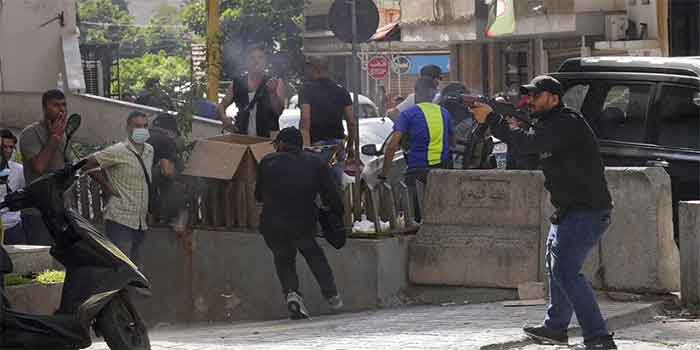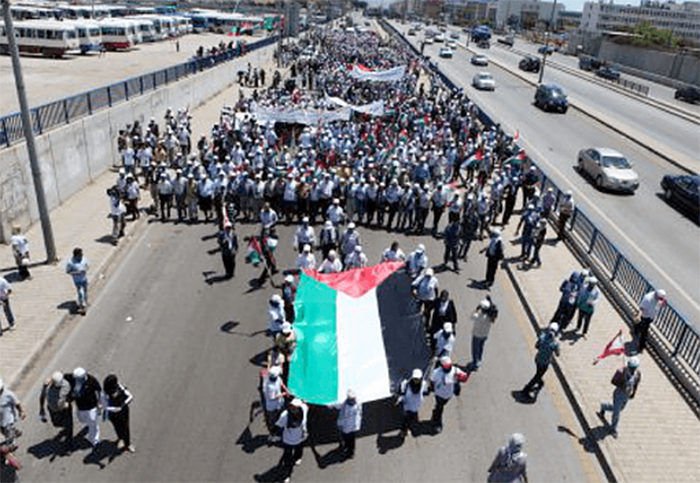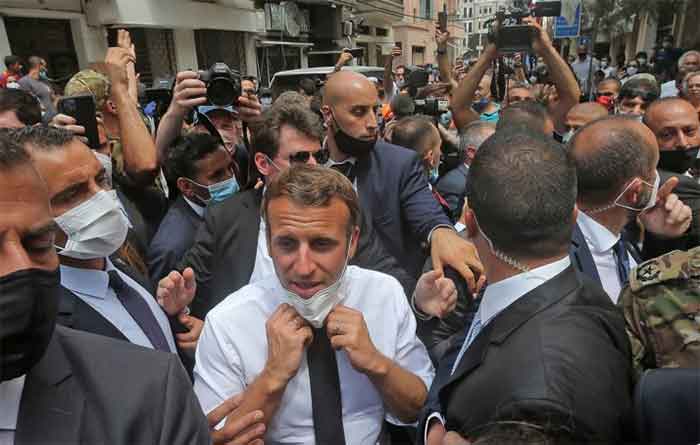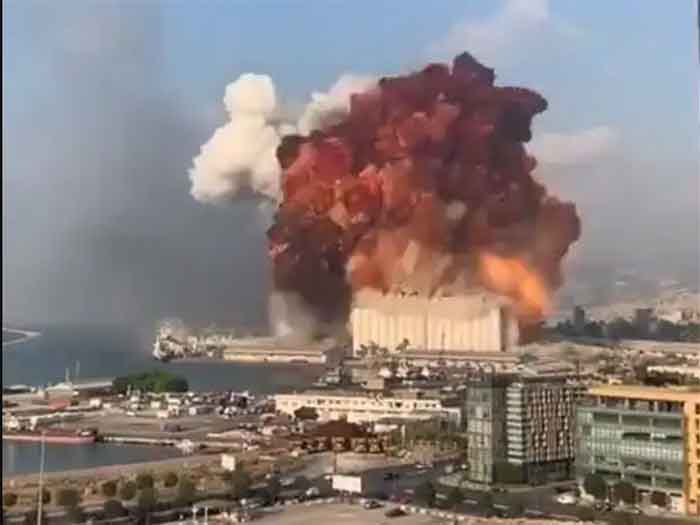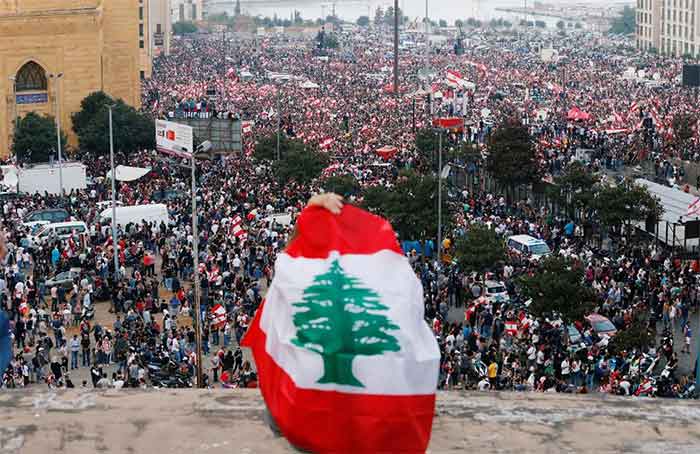
Lebanon is facing shortages of fuel and electricity. The price of bread has risen again in bakeries and stores in Lebanon as a result of rising production costs and the free-falling pound, the Lebanese Economy Ministry said Saturday.
Lebanese Prime Minister-designate Saad Hariri is slated to present President Michel Aoun this week with a new Cabinet lineup in a last-ditch attempt to end a political deadlock that for nearly 11 months has left Lebanon without a fully functioning government to tackle multiple crises, including an unprecedented financial downturn.
Media reports said:
Hike in Bread Prices
A small packet of bread, a staple for many families in Lebanon, rose by 14.7 percent per gram at supermarkets and shops to reach Lebanese Lira (LL) 3,000 while the large packet increased by 5.4 percent to LL4,250.
The bakeries’ union complained that as the value of the lira edges toward what would be a new record low of LL20,000 to the dollar, they are “incurring heavy burdens” to continue making and selling bread at what they described as a reasonable price.
Fighting over Fuel
Since the beginning of May, many petrol stations have continued to close, with those remaining having put in place fuel limits, as low as LBP 20,000 worth of petrol.
Road congestion is not only attributable to the aforementioned roadblocks, but also the immensely long queues at petrol stations, which have forced people to queue overnight. Alarmingly, the shortage of fuel is now linked to daily reports of shooting and fights over whose turn it is to fill up their tank.
Over June, even private generators have been rationed due to the lack of diesel fuel, with 4 hours/day of electricity suspended.
The smuggling of subsidized goods from Lebanon to Syria, which is already reportedly costing the Lebanese economy US$ 15 million per day, is a large contributor to these shortages. Attempts to curb smuggling have led to gunfights between the military and heavily armed smugglers such as in Ras Baalbek on the 12th June.
Escalation between Protesters and Security Forces
The failure of political leaders to resolve these issues has pushed the people to target the political leaders directly. During the last week of June, protesters tried to break into the homes of Representative Faisal Karami and MP Muhammad Kabara in Tripoli. In Beirut, protesters were also stopped by security forces after reaching the door of Raoul Nehme’s house, the Minister of Economy and Trade in the caretaker government.
Banks Targeted
Seen as symbols of the country’s fiscal deterioration, the banks have also been targeted. The Association of Banks in Lebanon went on a countrywide shutdown on June 30, following an attack against the staff of the Lebanese Swiss Bank’s headquarters in Beirut.
This came after the Lebanese Lira exchange rate plummeted to LBP 18,000/US$, on June 28, a loss of 90% of its value to the Dollar. According to the Lebanese Swiss Bank, about a hundred men broke into its headquarters.
In Tripoli and Sidon protesters also tried to storm branches of the central bank only to be pushed back by security.
On the last day of June, armed protesters took to the streets of Tripoli, Lebanon. They were outraged by the power outages and the story of a child on life support who died due to the failure of the hospital’s backup generator.
The protesters fired their guns in the air and threw stones at soldiers until the Lebanese army was deployed to contain the situation. Protesters then stormed the building of the Kadisha Electricity Company, and forced its employees to redirect electricity supplies. Whilst this was happening, the military also had to respond to eight roadblocks in different locations around the country and an armed dispute over the long queue at a petrol station in Deir al-Zahrani, resulting in the injury of 12 people.
Volatile Electricity Supply
Electricity supply volatility persisted over the weekend, with two power plants briefly going offline before the arrival of fuel shipments.
On Friday morning, Électricité du Liban announced that its two gas oil-powered plants, in Deir Ammar and Zahrani, had shut down because tankers waiting offshore had not been paid and fuel supplies had run out. By Saturday afternoon, the state power utility announced that the fuel tankers had received what they were owed and begun unloading, leading to a gradual increase in production at the plants.
However, both EDL and generator power remains limited, with many homes and businesses without any source of electricity for several hours a day. The Health Ministry canceled its COVID-19 vaccine marathons and appointments scheduled for Saturday due to issues with power supply and internet reliability. The head of Rafik Hariri University Hospital, Firass Abiad, confirmed however that the temperature-sensitive vaccines were safe thanks to separate backup power systems for the fridges.
Soldiers without Wages
The military is stretched dangerously thin, having to protect Lebanon’s despised politicians and banks, diffusing fights at petrol stations and clamping down on smuggling. The leadership is worried that it will no longer be able to deploy in the necessary areas because its soldiers haven’t received wages. As a result, the soldiers also suffer – alongside their people – from the deteriorating socio-economic conditions.
The military endeavors to persevere. A few days ago, they resorted to offering helicopter rides at US$ 150 to help pay the salaries of its soldiers – many of whom are currently on food rations and struggling to afford transport to locations where they are meant to be stationed. Often soldiers can be seen taking public buses, the cheapest and often ridiculed option in Lebanon.
From fighting over food in Bab al-Tabbaneh and Jabal Mohsen neighborhoods of Tripoli to the incursion of militants in Arsal, the military’s ability to protect Lebanon’s borders, let alone to ease internal strife, is decreasing day-by-day.
The country’s population, which includes civilians with high levels of weapon ownership, a plethora of militant groups, and warlords from the days of the civil war, could further erupt into violence as actors compete for influence and control of the dwindling resources.
Currently, political actors in Palestinian refugee camps, for example, such as Fatah and Palestinian Islamic Jihad in the Rashidieh camp, still have the authority as power brokers and peacekeepers. That said, any shortage of aid, such as the United Nations Relief and Works Agency (UNRWA), could tip the scales as desperation stirs violence.
The same balance could also be tipped in the wider population with now more than half living below the poverty line, and with no end to the crisis in sight, further instability is to be expected throughout July and August.
Emergency Aid
A few weeks ago, the extent of the problem was exemplified by the agreement of 20 nations to provide emergency aid to the ailing Lebanese military. This consisted of basic supplies such as milk, flour, medicine and fuel.
Hezbollah
As the situation becomes more violent in the country, Hezbollah may seek to enforce law and order itself. For the time being, however, Nasrallah stated in his speech on Friday, June 25, that Hezbollah supports the bolstering of the Lebanese military in its job to secure the country. If the “resistance” paramilitary group were to step in for the military – possibly the only respected institution in Lebanon – it would most likely provoke violent sectarian sentiment and uproar amongst the international community.

